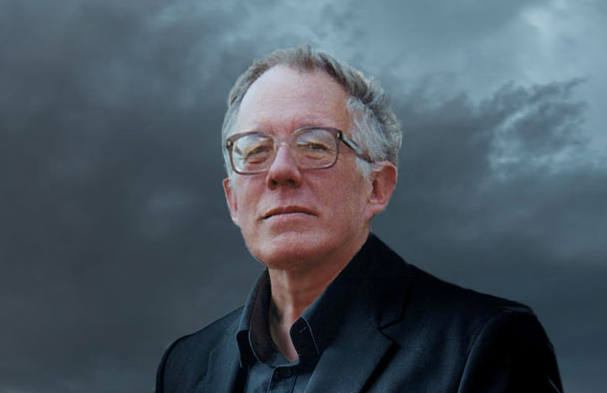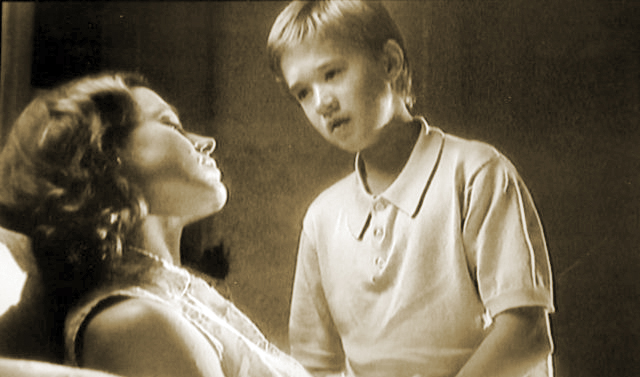Note of September 5:
I have used most of the text that used to be on this post for an introductory article about Evropa Soberana’s essays on Sparta and the Vikings in the forthcoming PDF of The Fair Race’s Darkest Hour.
Note of September 5:
I have used most of the text that used to be on this post for an introductory article about Evropa Soberana’s essays on Sparta and the Vikings in the forthcoming PDF of The Fair Race’s Darkest Hour.
 Click: here
Click: here
Update of August 31:
Since I have now modified the Preface I’m removing the text that used to be on this post.
A slow and detailed proof reading of the translated mini-books by Evropa Soberana within The Fair Race is taking longer than expected. Instead of the Preface that used to be here, I’m moving my first comment below into this entry:
 ‘The battle between Rome and Judea’, says Richard Spencer (1:14:32 in the August 25, 2019 Radix podcast) ‘is a battle fought in the field of morality. That was Nietzsche’s crucial insight. The blond beast could not be confronted directly. He had to be turned into a guilt-ridden head case’ by the transvaluation of all values, said Spencer with other words.
‘The battle between Rome and Judea’, says Richard Spencer (1:14:32 in the August 25, 2019 Radix podcast) ‘is a battle fought in the field of morality. That was Nietzsche’s crucial insight. The blond beast could not be confronted directly. He had to be turned into a guilt-ridden head case’ by the transvaluation of all values, said Spencer with other words.
‘So this political overthrow that occurred on the end of the Ancient World’, concludes Spencer, ‘was a moral battle. And morality itself is will to power. Morality itself is an attempt to dominate someone mentally, supernaturally I could say’.
I guess the alt-right and this site are starting to converge…
The programmed WordPress software closes comments of a post after a week. This means that my post of last Monday, ‘Busy for proof reading’, will be closed today after 2:00 P.M.
I am still busy reviewing the book, especially the Spanish-English translated essays of Evropa Soberana.
Once the PDF of the whole book is ready, I will replace the sticky post for another one. I will also delete the current edition of the ‘Rome vs. Judea’ essay because, after my revision, it has become obsolete.
This February I wrote: ‘I recently flipped through the copy of the 2014 edition of The Fair Race’s Darkest Hour that I own and was surprised that, since that year, I have eliminated no less than… fifty essays!’ In the later versions, I have been also adding many new essays and translations from the Spaniard Evropa Soberana and others.
Unfortunately, the PDF that a certain person uploaded to the Internet, without my permission, is the very outdated 2014 version of The Fair Race.
The United States is the country of the First and Second Amendments, which makes them superior to Europeans, at least in regard to freedom of expression and the right to possess weapons as a counterweight to the government’s power.
 But the recent events in that country, as we see with Donald Trump’s pronouncements about confiscating weapons from unruly citizens, or Lindsey Graham’s super-quotable quote in my post yesterday, make me think that anti-white accelerationism has already begun. When Graham, the same senator who defended Judge Brett Kavanaugh last September, makes such pronouncements it can be said that the first snowflakes of a long winter have already fallen.
But the recent events in that country, as we see with Donald Trump’s pronouncements about confiscating weapons from unruly citizens, or Lindsey Graham’s super-quotable quote in my post yesterday, make me think that anti-white accelerationism has already begun. When Graham, the same senator who defended Judge Brett Kavanaugh last September, makes such pronouncements it can be said that the first snowflakes of a long winter have already fallen.
For this reason, I feel obliged to place on this site the PDF of the most updated version of The Fair Race for free. The updated book will still be available from Lulu for those who want a hard copy. It was never my intention to profit from the essays of other authors collected in The Fair Race. But it seems to me important that, if the US government were to violate the First Amendment, visitors of this site should download the PDF of the best essays collected for ten years since I started blogging.
The next few days I will be reading the more than six hundred pages of The Fair Race so that the public PDF may be as clean as possible, and I will add a couple more essays that will render obsolete even the previous edition of this year.
I apologise to regular visitors that I will not be very active these days, as I’ll be busy reviewing the long book.
‘The guy in El Paso was on one of these white supremacist hate sites where they radicalize each other. We should shut those sites down’.
The Alexamenos graffito (also known as the graffito blasfemo, or blasphemous graffito) is a piece of Roman graffiti scratched in plaster on the wall of a room near the Palatine Hill in Rome, which has now been removed and is in the Palatine Hill Museum. It may be the earliest surviving depiction of Jesus and, if so, competes with an engraved gem as the earliest known pictorial representation of the Crucifixion of Jesus. It is hard to date, but has been estimated to have been made around 200 C.E. The image seems to show a young man worshipping a crucified, donkey-headed figure. The Greek inscription approximately translates to ‘Alexamenos worships [his] god’, indicating that the graffito was apparently meant to mock a Christian named Alexamenos.
______ 卐 ______
While we were talking amiably, I heard far off the uneasy neighing of horses, but thought nothing of it. Then Oribasius mentioned those Hebrew books which the Galileans refer to as the old testament. This was a favourite subject with me. So much so that I forgot Helena was in the room. “I admire the Jews because of their devotion to a single god. I also admire them because of their self-discipline. But I deplore the way they interpret their god. He is supposed to be universal, but he is interested only in them…”
“Christ,” said my wife suddenly, “was sent by God to all of us.” There was an embarrassed silence.
“The issue,” I said finally, with great gentleness, “is just that: would the One God intervene in such a way?”
“We believe that He did.”
The room was now completely still save for the far-off sound of horses. My companions were on edge.
“Yet is it not written in the so-called gospel of John, that ‘out of Galilee arises no prophet’?”
“God is God, not a prophet,” said Helena.
“But the idea of the Nazarene’s mission, in his own words, is taken from the old testament, which is Jewish, which says that a prophet—a messiah—will one day come to the Jews, but not God himself.”
“That is a difficulty,” she admitted.
“In fact,” and I was stupidly blunt, “there is almost no connection between what the Galileans believe and what the Nazarene preached. More to the point, I see nothing in the Jewish text that would allow for such a monstrosity as the triple god. The Jews were monotheists. The Galileans are atheists.”
I had gone too far. Helena rose, bowed, and withdrew, accompanied by her ladies.
My companions were alarmed. Priscus spoke first. “What a gift you have, Caesar, for making the difficult impossible!”
The others agreed. I asked their forgiveness. “Anyway,” I said, not believing my own words, “we can trust Helena.”
“I hope so.” Sallust was gloomy.
“One must be true to what is true,” I said, wishing as I so often do that I had held my tongue.
There was a sudden shouting in the streets. We all sprang to our feet. We had hardly got to the door when an officer arrived to report that Sens was being attacked. Elsewhere I describe what happened and I shall not repeat it here.
by Evropa Soberana
The Nazis organised the SS, a military and biological elite that was destined to be the aristocracy of the New Order. In the picture, a formation of the SS Division Leibstandarte Adolf Hitler, the most elite division of the SS. To enter the Leibstandarte it was necessary to measure 1.84 meters, be between seventeen and twenty-two years old, be Nordic and have a health of steel. For many years, no one who had the slightest physical defect, such as glasses or a dental filling, was allowed to enter the Leibstandarte.
The SS Doctrine
As an elite, the Nazis organised, within the NSDAP: the SS, guardians of the National Socialist idea, firmly indoctrinated and severely disciplined. The SS began to incorporate the flower and cream of all Germany (it was common for athletes or prominent scientists to be made SS), and they were laying the foundations of a social order based on the biology, genetics and will of the human spirit.
The SS in general attached great importance to good physical and mental condition and to the cleanliness of the lineage of extra-European influences. The conditions of entry remained very strict until the Second World War. In 1937, Hitler was proud that ‘we continue to admit only fifteen percent of the candidates who present themselves to the SS’. The discipline of these men was extremely severe and rigid, and the punishments even for minor infractions, brutal.
Each SS promised to marry (their wives automatically became SS women with the marriage, and enjoyed the relevant help) a woman of pure blood and have, if possible, four healthy children. Both this and the entire Lebensborn project were framed in the Nazi policies of positive eugenics, while the famous sterilisation of the defective ones was the negative eugenics.
However, the SS were not just a pack of stallions. They proved to be the toughest, trained, fanatic, brave, bold and faithful shock force of the entire World War II, starring true military feats unparalleled in the Eastern Front, and reaching the limits of human resistance in arctic temperatures and in hostile territory, against an enemy that represented an Asian, slave and oriental idea (Bolshevism), and that far exceeded them in number.
Due to its oath of fidelity and its sense of duty the SS was, along with the Luftwaffe and the submarines, the German military body that suffered the most casualties.
At the base of the SS ideological training we can see anti-Christian beliefs. One of the most radical SS commanders in this regard was undoubtedly Theodor Eicke, head of the Totenkopfverbände who initiated an aggressive anti-Christian campaign, during which many SS who clung to Jesus were expelled from the body.
Our Germanic ancestors followed the laws of selection as all healthy peoples whose intelligence and sensitivity had not yet been contaminated by false doctrines of piety. The false conception that the Church had of God denied the divine laws of Nature. The ecclesiastical teaching deliberately opposed the will of Nature.
Once it was preached to the peoples that God had died crucified for mercy of the weak and the sick, sinners and the poor, the unnatural teaching of piety and a false humanitarianism could promote the conservation of the congenital sick. It was considered a moral duty to care and favour mainly the sick, the overwhelmed unfortunates and the poor in spirit…
On the other hand, several hundreds of courageous young Germans fall every year victims of sport or competition, in the fight against ice, in the snow, in automobile races or by plane. No matter how large the number of these victims, no people on Earth have died from war, from bad harvests or as a result of a period of political recession. The peoples have only disappeared when the living substance that ensures their historical life, their blood, their race, have been exhausted. They only die, then, in the following cases:
- When the number of births falls due to the regression of the popular force, thus offering the possibility of being crushed by a qualitatively and quantitatively stronger neighbour.
- Through racial crossings that have taken away the inner harmony of an originally healthy people.
- By disregard of the laws of selection, which causes a decrease in the genetic heritage of value and leads to a reduction of the capacities and qualities in the population.
The death of a people is based, then, on an erroneous conception of life, and is due to the non-observance of the eternal laws of the Earth. Man has learned to despise the laws of life because he has lost the bond with Nature and life. (Notebook SS No. 3, 1939, ‘Why do Peoples Die Of?’ cited in The SS Order by Edwige Thibaut.)
The more a human group manages to dominate and transform the conditions of their area of life by establishing a culture faithful to the law of life, the more easily the individual manages to preserve and avoid elimination. The laws of selection and elimination, severe in origin, gradually disappear and are attenuated. The older a culture ages and reaches the state of late civilised times, the more it loses its vigour. She even produces the reverse process. Weak and sick individuals can thus survive and reproduce; different racial types are mixed. The creative law of the species no longer seems to act…The most favourable case of the cultural relationship with the original biological natural selection appears when the objective of the second is continued with the first. Thanks to a keen perception of the law that governed the origin of their species, peoples like the Spartans resorted in their selections to the same principles of inflexible severity originally prescribed by Nature, even after having reached more hospitable territories. Other Nordic peoples, such as our Germanic ancestors, naturally obeyed the biological laws that governed the creation of their species…
The intrusion of Christianity in the culture of our Germanic ancestors has given birth to a form of selection that, from the beginning, was revealed hostile to our race and its laws of evolution. The elite of Christian priests chose appropriate and usable men for their purposes, but prohibited them from perpetuating and conserving the best racial heritage by forcing them into celibacy. (Notebook SS No. 7, 1942, ‘The Biological Sense of Selection’ cited in The SS Order by Edwige Thibaut.)
On Occidental Dissent Brad Griffin writes:
We’ve also been sued for $10 million in a civil suit for allegedly causing James Fields, Jr. to crash his Dodge Challenger into that crowd of folks in Charlottesville. I had never heard of James Fields until I saw him on the news. I wasn’t even in Albemarle County at the time.
Recently also Kevin Alfred Strom wrote:
And look at what happened to David Duke. To Ernst Zundel. To Will Williams. To me. And to James Alex Fields of Charlottesville fame, who was convicted of first degree murder of a woman he didn’t know, never saw, certainly didn’t intend to kill, and certainly didn’t even know had been killed. America, America, God shed His grace on thee.
Law enforcement and prosecutors are very often politically motivated liars and persecutors these days in the USSA. They pursue—a not justice, but the opposite of justice in many, many cases. There is no justice, only injustice, if you are a member of a politically disfavored group. Especially if you don’t have a spare $250,000 lying around to pay a good lawyer. (The defense side of criminal prosecution should be socialized, just like the prosecution side is.) And racially conscious White people are the ultimate disfavored group, thanks to Jewish money and influence in our society.
The United States that I saw in movies as a child no longer exists. Today’s US is penalising law-abiding nationalists basically for thoughtcrime and, as Strom says in his piece, concurrently it has tried to liberate criminal Jews from jail. But in spite of such blatant violations of the old American law, virtually all racially conscious whites over the internet still think like reactionaries, not like potential revolutionaries.
Don’t get me wrong. I am not advocating doing something illegal now. My point is that these folks don’t understand what is most elemental to me:
 That they should start taking revolutionary thinking seriously as purely academic discussions, starting with the videos of John Mark or, for the truly mature post-Christian, Will Pierce’s The Turner Diaries.
That they should start taking revolutionary thinking seriously as purely academic discussions, starting with the videos of John Mark or, for the truly mature post-Christian, Will Pierce’s The Turner Diaries.
But they won’t do it… Even the commenters of the once inspiring Daily Stormer will be thinking like law-abiding good Christians and, when they finally find themselves in prison for thoughtcrime, they’ll be clueless as to why the hell they got their asses there.
For a long time, I have been advertising Robert Morgan’s comments on this site, even when he used to comment under another penname. But with his most recent response at Unz Review to another regular visitor of The West’s Darkest Hour, that hate is what powers the entire universe and that ‘The love of a child for its parents is self-interest, because without them it would probably die’, I see that Morgan is incapable to see what we may call a psychogenic emergent leap, especially among humans (cf. what I say about psychohistory in Day of Wrath).
I cannot delve deeply into the subject as today I’ll translate Evropa Soberana’s section on the SS. But to say that love does not exist is a terrible mistake.
If you see the tags and categories of this site you’ll find that now I only have a single tag: the ‘4 Words’, the ultimate goal of my philosophy. What else could these four words(*) mean except love for the animals (and of children abused by their parents, or abandoned in the woods, as David)?
Morgan badly needs to watch the 2001 film Artificial Intelligence and see what an emergent leap means: the psychogenic jump from pure erotic gratification to, as professor Hobby says (the creator of David), ‘Love like the love of a child for his parents’.
I once told Morgan that his robotic view about humans was seriously wrong and that he had not read my books (obviously, as I still have to translate them). His tragedy is the tragedy of many deracinated males that have a good grasp of science and almost none of the arts and the humanities.
Morgan’s views about the human psyche remind me of Descartes’ psychotic views about animals as mere automatons. This is why, unlike many white nationalists, I consider Hitler a balanced man: he had a good grasp of the humanities as demonstrated in his table talks. It is just too bad that, compared to Hitler, many male nationalists suffer from a sort of hemiparesis in the sense that they don’t use much the hemisphere of the emotions. Have they followed Schopenhauer’s advice to have a woman as a confidant, or are they trapped in a purely Yang mind?
 Those males who haven’t cried at the film’s end (‘I love you, David’, she says. ‘I do love you. I have always loved you’) won’t grasp what do we mean.
Those males who haven’t cried at the film’s end (‘I love you, David’, she says. ‘I do love you. I have always loved you’) won’t grasp what do we mean.
__________
(*) ‘Eliminate all unnecessary suffering’ and their corollary: exterminate those species that cause it.